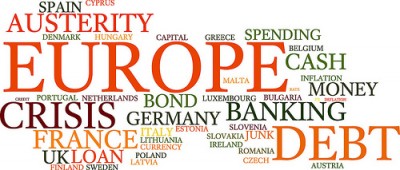It is good that an agreement concerning law regulating fiscal responsibilities is reached in our Parliament, involving whole political spectrum. It is great to put down the fire with common effort. It would be even better, however, if we agreed on reasons of this long fire of debt, who and how caused it. And one of the main reasons is the fact that politicans in many countries willingly listened to economic theories, whose implementation in economic policy led the world to today’s mess.
In 1936, in answer to economic crisis then, British economist John Maynard Keynes published General Theory of Employment, Interest and Money. He formulated thesis that state should mitigate economic cycles, stimulate economy when it is in crisis and hinder it when it grows rapidly. He descibed in detail instruments, with which it can be achieved: expansive or restrictive budgetary politics of the government and expansive or restrictive monetary policy of the central bank. Including reaching deficit, if it is necessary.
Keynes’ theory was very successful. It became dominant part of mainstream economy at that time, it found place in all standard economic textbooks. In practice it was reflected in Keynesian economic policy. Keynes gave politicians economic instruments, similar to brakes, gas and steering wheel in a car. Not only left-wing, but also conservatist and liberal politicians willingly used them. Result: today we live in a world of Keynesian institutions. They are active, interefere with functioning of the economy in a long run and often, the results of which we all have to face today.
However, there were also economists, who did not agree with Keynesian prescriptions. Among the most determined and essential critics there was Austrian School of economics, whose representative was also Hayek. Austrian School of economics became famous when only a few years after formation of the Soviet Union in a discussion with socialist economists they argued that socialist economic system, based on public property and central planning, cannot function and has to fail. It turned out to be true in 1989. They always considered stimulating economy to be very harmful. By praising deficit financing according to them Keynes gave children matches and fire was just a matter of time. Now it is clearly visible that they were right.
Today’s economic problems do not come as a surprise for Austrian School also for another reason. It has been fundamentally criticizing for a long time system of central banking, which in today’s reality is a monopoly of state to issue uncovered money, which „Austrians“ considered to be a central planning in banking system. Problem today does not concern euro or dollar, but money in general, when its value is not in any way objectively determined and central banks have free hand in its unrestricted production. When this system collapses as well, life will prove Austrian School to be right for the third time.
Advice for politicans? Listen not to those whose prescriptions of activist economic policy leads world to the catastrophy, but those who predicted these consequences a long time ago, warned against them and attributed the role of creator of framework conditions to the state. Even though many may not like it, world according to the „Austrians“ would be much better place to live in than world according to Keynes and his followers, in which we live today.
Translation: Martyna Bojarska



















No comments
Be the first one to leave a comment.